SEO
I Asked 12 SEOs To Share Their Favorite SEO Books
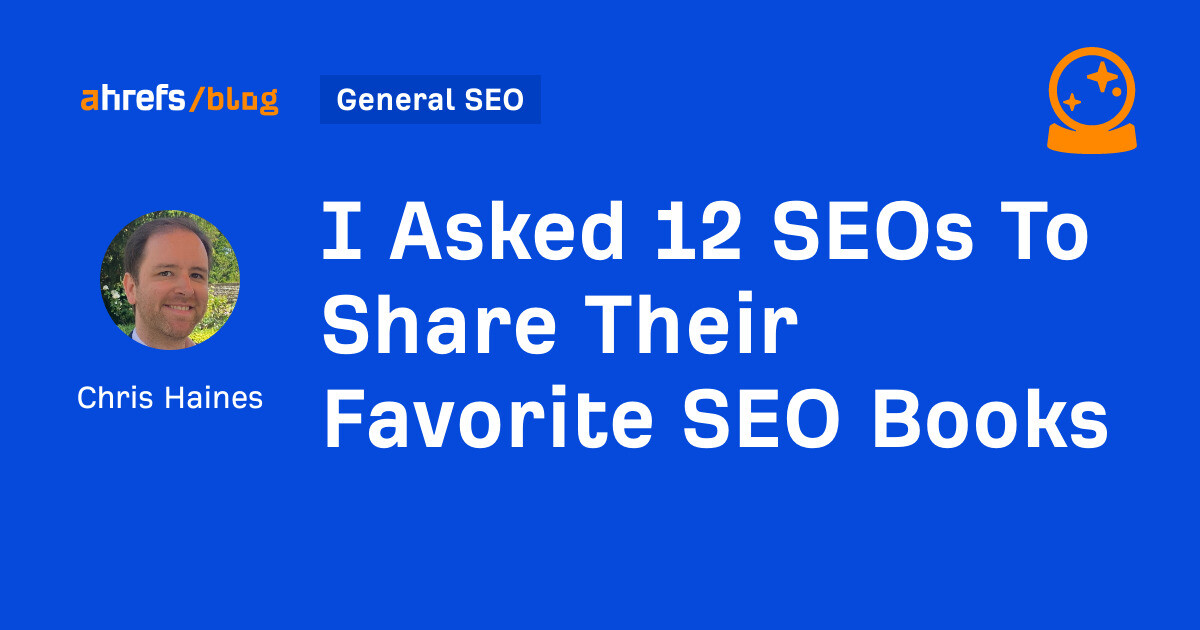
I asked 12 SEOs to share what’s on their bookshelves.
Here’s what they said:
Authors: Stephan Spencer, Eric Enge, Jessica Stricchiola
First published: 6 November 2009
Recommended by: Aleyda Solis
Here’s why Aleyda recommended this book:
“I highly recommend this book to anyone who wants to learn SEO from scratch or gain insights into any specific SEO area. It’s the most complete SEO book out there!”
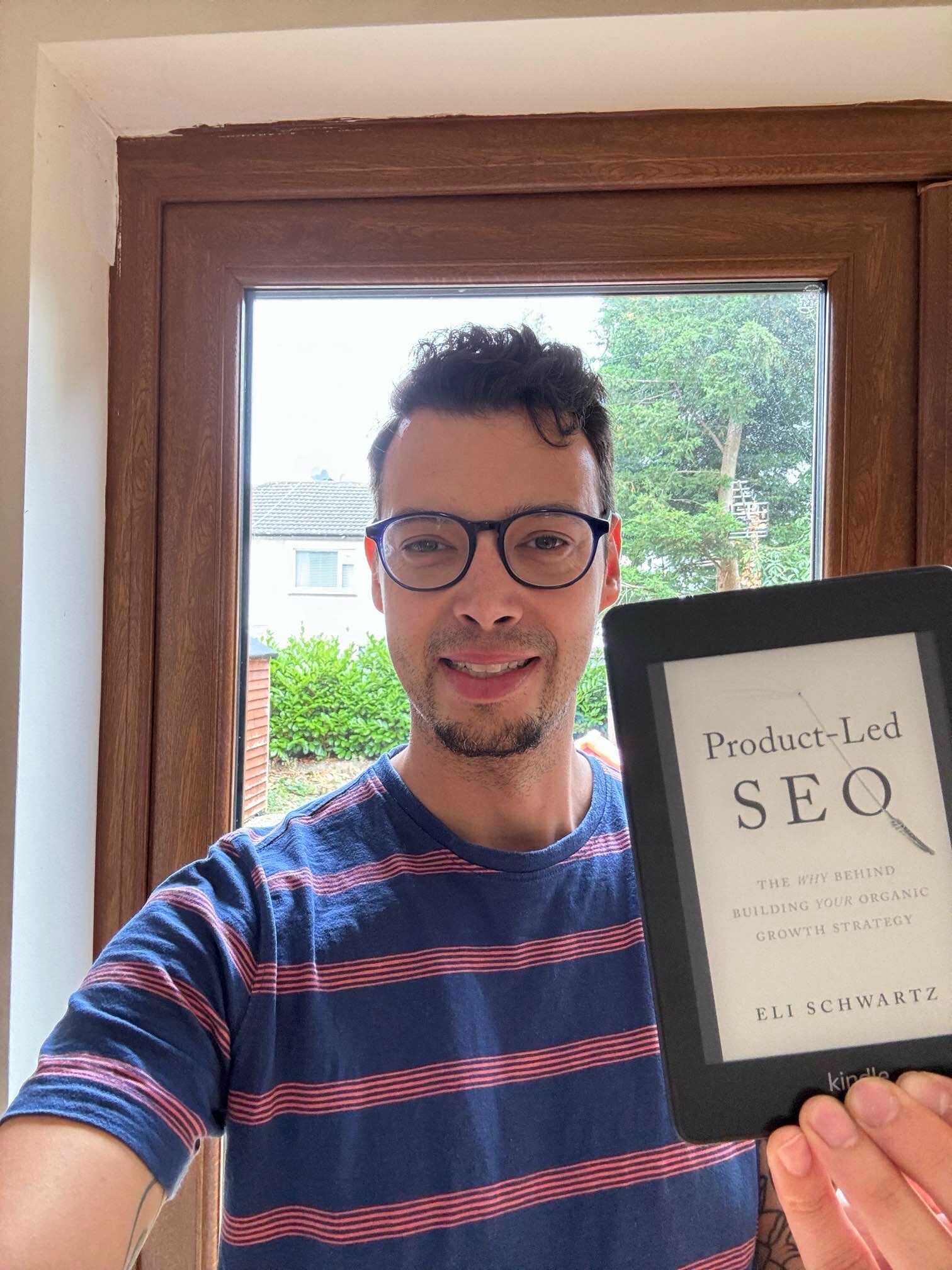

Author: Eli Schwartz
First published: 27 April 2021
Recommended by: Gus Pelogia, Philipp Götza, Patrick Stox
Here’s why Gus recommended this book:
“I read Product-Led SEO sometime before starting to work in Product Development, and now I’m reading it again. This book takes you out of the SEO shell, and it’s about strategy and approach to SEO vs tactics.
It’ll take you out of the usual SEO approach (e.g., we need more keywords) and give examples of how companies can approach SEO as a holistic strategy. It’s also an easy and quick read, I was nodding along as I read it.”
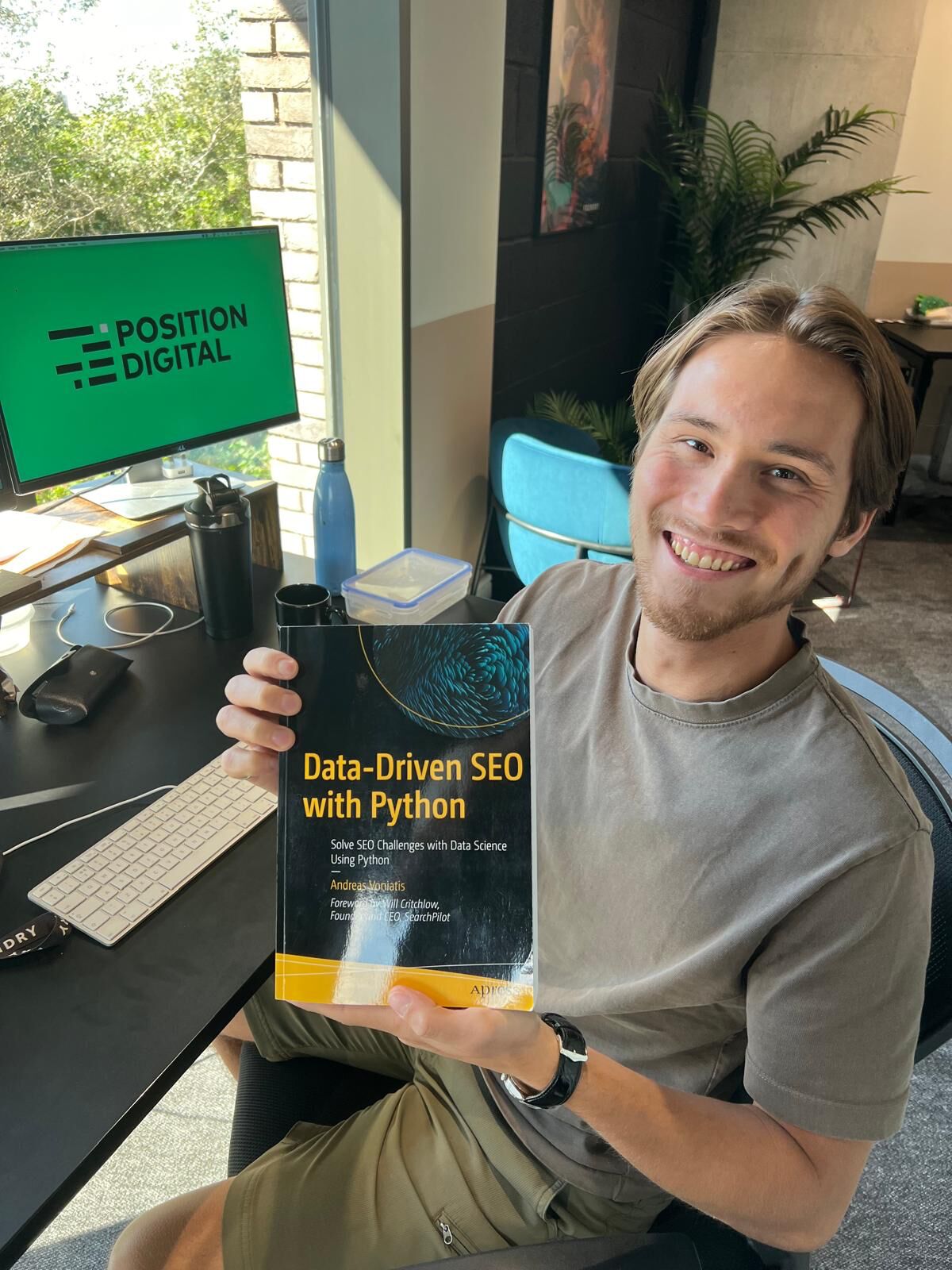

Author: Andreas Voniatis
First published: 25th March 2023
Recommended by: James Flint
Here’s why James recommended this book:
“It’s a great book if you already know a little bit of Python and want to improve your SEO skills, it dives straight into it with no messing about. Andreas has done a great job merging these two fields and provides a great hands on approach throughout.”


Author: James Victore
First published: 5 March 2019
Recommended by: Dan Taylor
Here’s why Dan recommended this book:
“Feck Perfuction, for me, is a must-read for anyone looking to be reinvigorated and open to breaking things and standing out. It’s thought-provoking, and I’ve found it helps better understand the flaws in things and turn them into inverse weaknesses, as well as better communicating complex SEO topics and not just defaulting to “it depends.”
It’s not a step-by-step, but Victore promotes a mindset shift that promotes creating marketing that resonates with your audiences.”
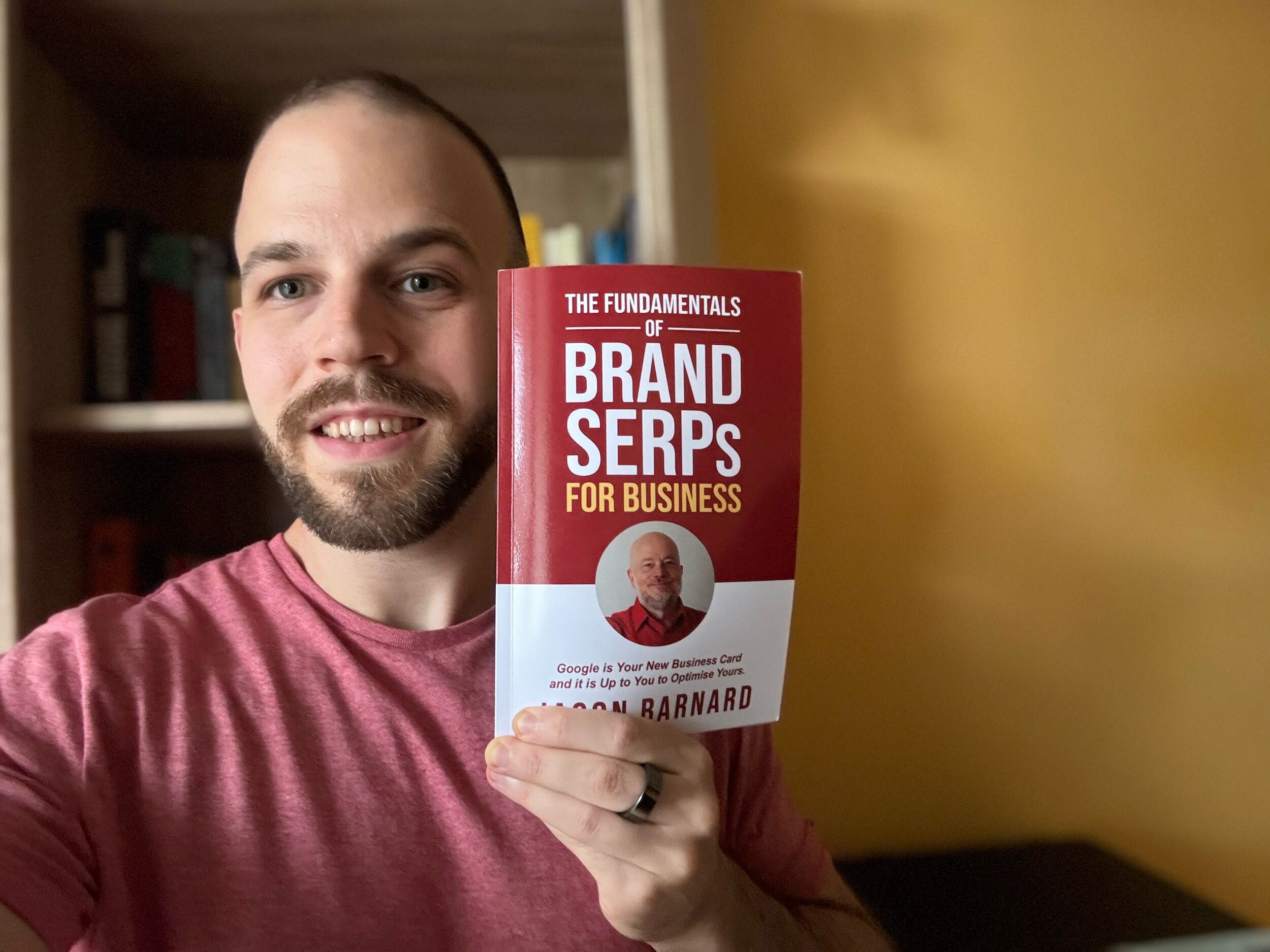

Author: Jason Barnard
First published: 11 January 2022
Recommended by: Michal Pecánek
Here’s why Michal recommended this book:
“I believe that proper integration of SEO with brand management got to a whole new level of importance with the widespread adoption of generative AI tools. Do you want ChatGPT, Perplexity, or Google’s AIOs to regularly showcase your brand and products? You better focus on reputation management, entity SEO, and building a strong brand.
Jason’s pseudonym is The Brand SERP Guy–that says it all. I like that his book is useful for SEOs of all levels, as this is an often overlooked discipline. If you’re a pro, you can just go straight to the insights and tips. I read most of the book because it’s a quick read anyway. This should be a must-read for anyone serious about building their online presence.”
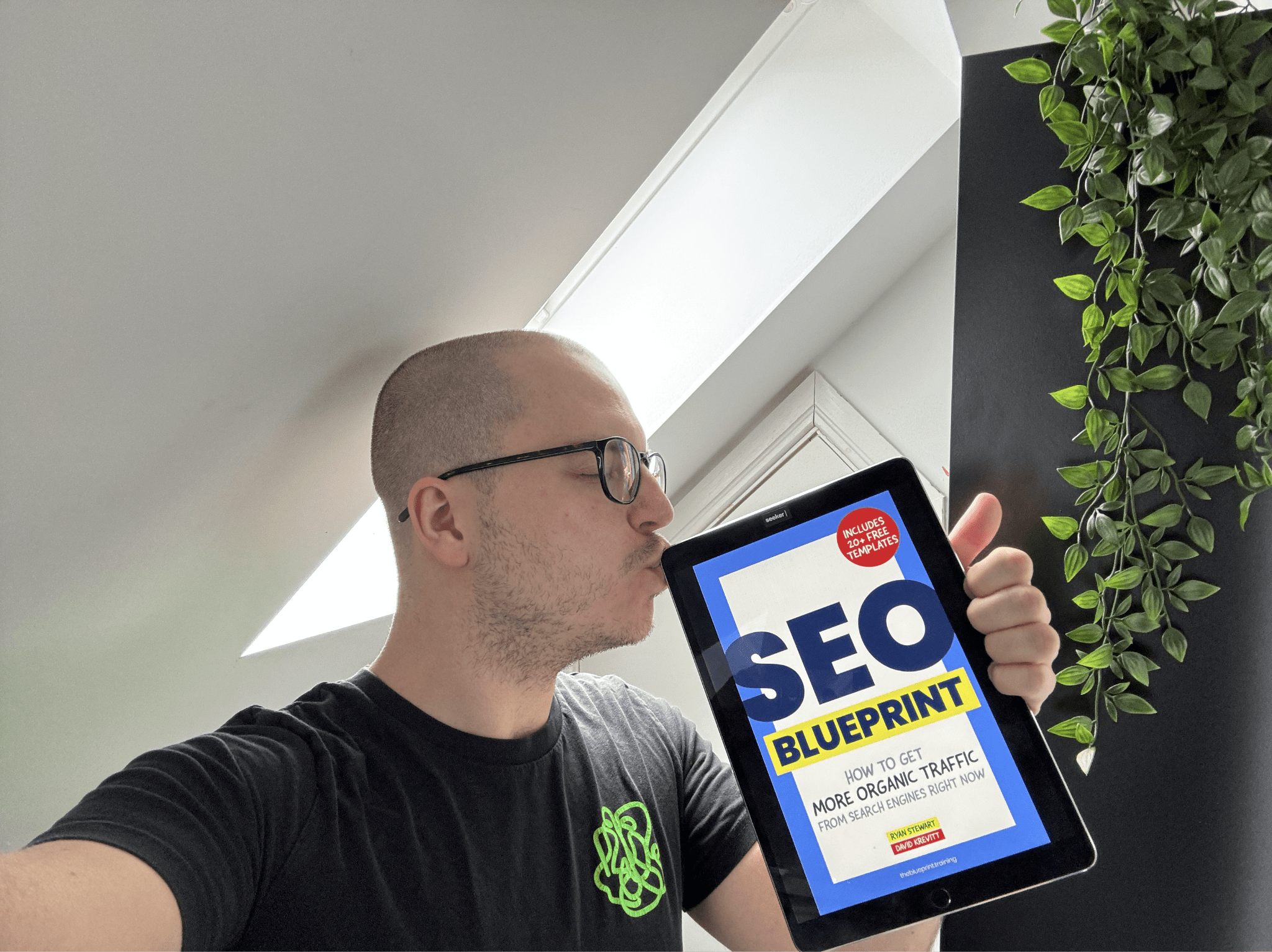

Author: Ryan Stewart
First published: 26 February 2020
Recommended by: Joshua Hardwick
Here’s why Joshua recommended this book:
“My favorite thing about this book is how actionable it is. Ryan shows you how to actually manage an SEO project for clients (or your own website) and gives you the spreadsheets/processes he uses for free so you can follow along. It could probably use an update as it was last updated in 2020, but it’s still an amazing book for anyone wanting to learn how to actually do SEO and not just drown themselves in theory.”


Author: Chet Holmes
First published: 27 May 2008
Recommended by: Glen Allsopp
Here’s why Glen recommended this book:
“There’s lots to love about the book, but I particularly fell in love with a concept Chet calls the ‘Dream 100’. The idea is to build relationships with the Dream 100 people who could impact your business, whether that’s potential clients, people who could promote your creation, etc.
Giving value to people up front – even if they aren’t likely to have any impact on what I’m doing online – is something I’ve always tried to do and believed in so that’s why I related to it the most.
Chet helped me think about systemizing that process and making it a proactive thing rather than reactive and in the moment. The relationships I’ve built have been key for a number of businesses I work on, and I love how the book gives a number of specific examples of how Chet himself used it on his journey.”
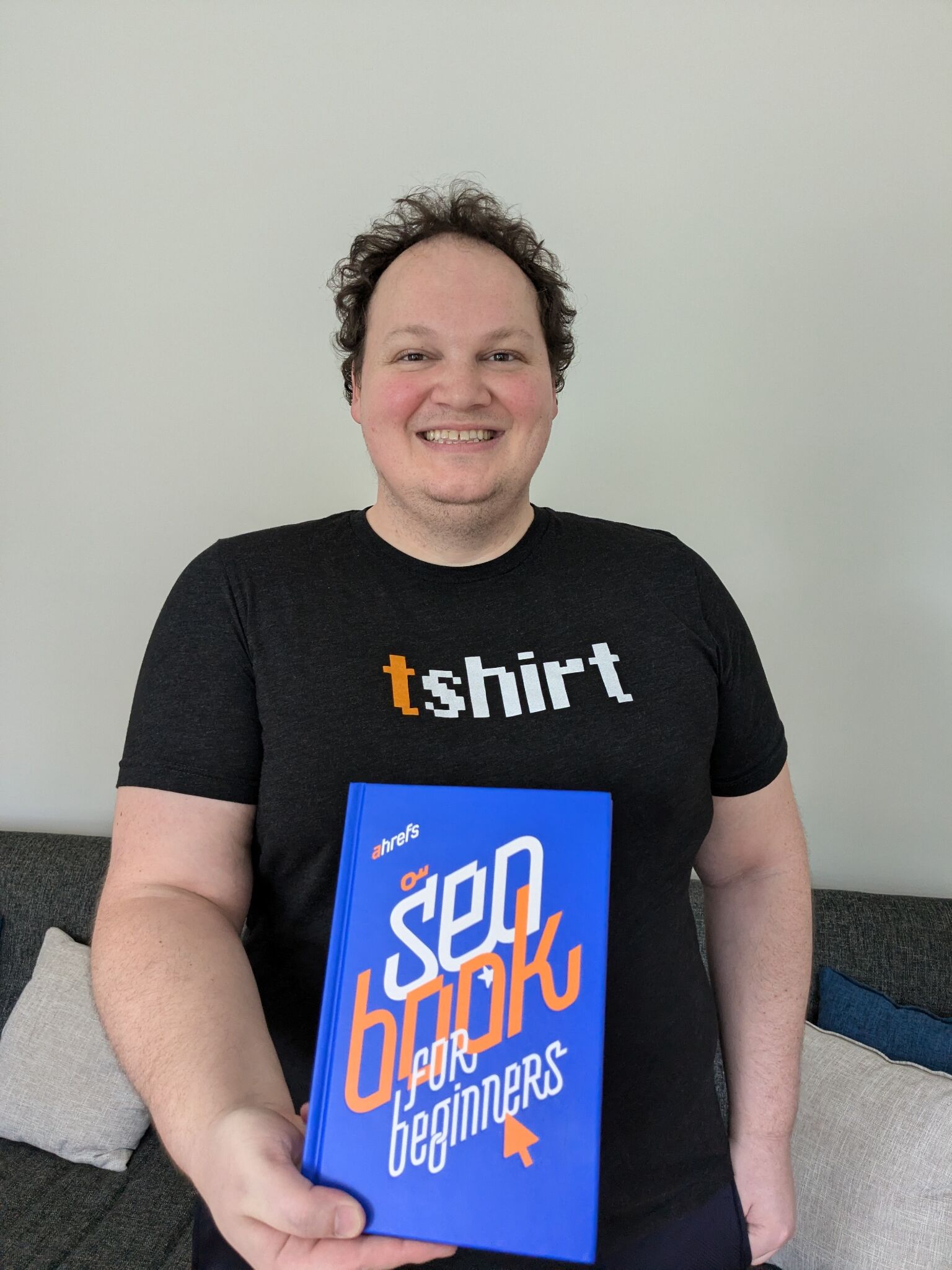

Author: Tim Soulo, Joshua Hardwick, Patrick Stox
First published: January 1, 2023
Recommended by: Patrick Stox
Here’s why Patrick recommended this book:
“The Ahrefs SEO book for beginners is the perfect read for new SEOs. It’s straightforward and has all the actionable information you need to be successful.”


Author: Tim Soulo, Sam Oh
First published: 2023
Recommended by: Theo Haines, age 3 ¼
Here’s why Theo recommended White Haired SEO:
“It’s a lovely book because it’s got the bluebirds in it—that’s my favorite. I like the bit where she’s scaring the bluebirds away…I like the book flying into the library!”


Author: Paddy Moogan
First published: 2013
Recommended by: Chris Haines
Here’s why I recommended this book:
“As a junior SEO, I found this book useful in 2013 to help me do my job. At the time, there wasn’t any book that told you everything you needed to know about link building, but this book filled the gap.
As it’s recently been updated and put online for free here, I found myself returning to the book over ten years later and still finding useful nuggets of information that got me thinking about link building in different ways again.”
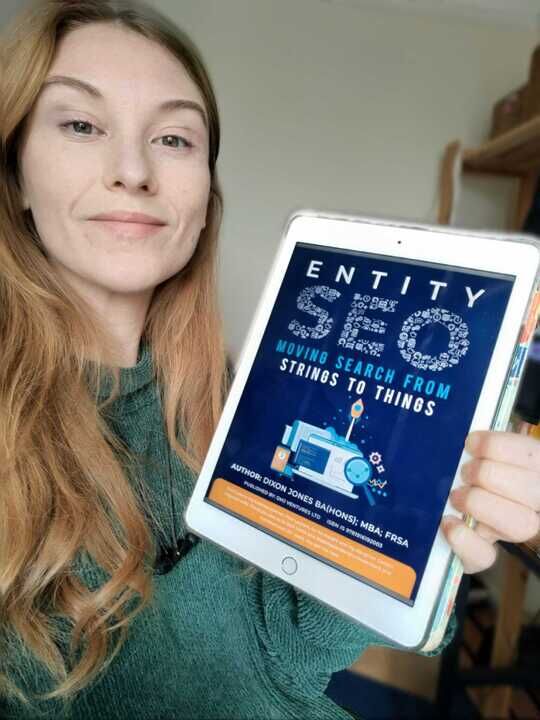

Author: Dixon Jones
First published: 1st September 2021
Recommended by: Louise Linehan
Here’s why Louise recommended this book:
“Even though I have known (and written) about entities and semantic SEO for a number of years now, I still learned a lot from this book. Dixon Jones gives a thorough historical explanation of how search engines came to decipher entities, which must have taken a ton of time to research. One of the things I was especially surprised to learn was how much Google relies on Wikipedia data and human input to identify and categorize entities. I knew Wikipedia played a part in this, but I didn’t realize the full extent.
The book also reminded me of the importance of entity SEO in building an authoritative brand, and I picked up some great practical tips, like using Google’s Knowledge Graph and Structured Data tools to research (and replicate) the entities of top competitors – a tactic I’d never considered before. The detailed historical context, paired with useful, practical advice, definitely made this a worthwhile read.”
Final thoughts
If you want to learn SEO from scratch, you can randomly pick from thousands of articles online, or you can pick a single book from this list—like our SEO book for beginners. Both ways will teach you about SEO, but in my opinion, an SEO book is usually the best place to start if you want a decent grounding in SEO or are looking for more depth of opinion on a particular topic.
Once you’ve grasped the basics, you can start absorbing the regular SEO updates online or read more specialized books from your favorite SEOs in this list.
Want to share what SEO books you’re reading? Let me know on LinkedIn.












![How AEO Will Impact Your Business's Google Visibility in 2026 Why Your Small Business’s Google Visibility in 2026 Depends on AEO [Webinar]](https://articles.entireweb.com/wp-content/uploads/2026/01/How-AEO-Will-Impact-Your-Businesss-Google-Visibility-in-2026-400x240.png)
![How AEO Will Impact Your Business's Google Visibility in 2026 Why Your Small Business’s Google Visibility in 2026 Depends on AEO [Webinar]](https://articles.entireweb.com/wp-content/uploads/2026/01/How-AEO-Will-Impact-Your-Businesss-Google-Visibility-in-2026-80x80.png)














